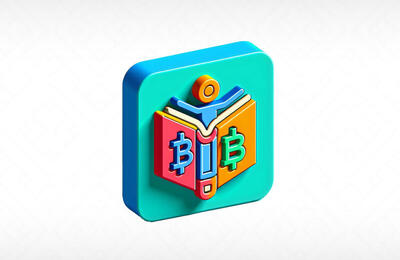
Education plays a pivotal role in empowering college students to navigate the complexities of virtual currencies. This essay explores the mixing of cryptocurrency education into economic literacy applications. It attracts insights from successful projects and highlights key concerns for educators and policymakers. By leveraging simplified instructional strategies, targeting younger audiences, and considering factors past economic literacy. These programs aim to equip students with the knowledge and competencies essential to make informed selections in the digital economic system.
Keeping Pace with Technological Changes
It's essential for educational programs to keep pace with technological advancements. Digital currencies gain traction worldwide by incorporating up-to-date information. Check best security practices, fraud detection, and risk management strategies. These initiatives ensure that students are equipped to safeguard their assets and protect themselves from potential threats. Students can navigate the digital landscape with confidence and competence.
Simplified Educational Approaches
Complexity often poses a barrier to understanding, particularly in emerging fields such as cryptocurrency. Successful educational programs leverage simplified approaches to demystify digital currencies. The study empowers students with practical knowledge. Modern youth crave up-to-date information that's easily accessible and convenient to learn. Traditional methods like spending evenings in libraries aren't always practical for today's busy students. That's where convenient help comes in. If you're looking for essay writing help or educational resources, check this site. Here, you can find valuable tools and support to enhance your learning experience and stay ahead in your studies. By focusing on key principles which includes decentralization, blockchain era, and the storage and control of crypto property. These tasks make complex subjects reachable and engaging for college kids of all backgrounds.
Targeting Young Audiences
Early intervention is prime to fostering lifelong financial literacy. Start teaching college students approximately cryptocurrencies from a young age. Schools can help them emerge as accountable with money as they grow up. When students study virtual cash early on, they're more prepared to make excellent selections later in life. By engaging students in interactive getting to know reports and actual-world examples, those packages equip college students with the know-how and talents necessary to navigate the virtual economy with self-assurance.
Here are some simple ways to teach financial literacy programs that include cryptocurrency:
Practical Knowledge: Teach students practical skills like setting up and managing private keys safely. Help them understand the difference between «hot» wallets (connected to the internet) and «cold» wallets (offline storage). Show them how to choose between different currencies, exchanges, and platforms for decentralized finance (DeFi).
Integrate Cryptocurrency Education: Add lessons about cryptocurrencies into regular financial classes. Cover topics like decentralization, blockchain technology, storing and managing crypto assets, and investing in digital currencies.
Simplified Education: Make learning about crypto easy by focusing on practical skills and using updated teaching methods. Keep things simple and practical to help students grasp the concepts better.
Dedicated Courses: Create special classes just for digital finance. Dive deeper into complex topics like blockchain technology, decentralization, security measures, and privacy concerns related to cryptocurrency.

Beyond Financial Literacy
While economic literacy serves as a crucial basis, it is important to recognize that different factors also affect funding choices in cryptocurrencies. Factors which include danger perception and herding behavior can considerably affect student conduct. They underscore the need for a holistic technique to selection-making. By thinking about the broader context of student attitudes and behaviors, educational programs can empower students to make informed choices within the virtual economic system.
Integrating Key Components into Program Design
Incorporating the key components of successful educational programs into program design requires a strategic and comprehensive approach. Teachers and school leaders should work together to make lessons that are easy to understand and fun to learn. By integrating knowledge of technological changes, simplifying educational approaches, and targeting young audiences. Knowing about money is important, but there's more to it than just numbers. Students also need to understand things like taking risks and following the crowd
Conclusion: Empowering Students in the Digital Economy
Cryptocurrency education represents a crucial opportunity to empower students with knowledge and skills. This necessary knowledge helps to thrive in the digital economy. Incorporate simplified educational approaches, target young audiences, and consider factors beyond financial literacy. Educational programs can equip students with confidence. They create competence to navigate the complexities of digital currencies. As we continue to adapt to the ever-changing landscape of finance, investing in student education remains key to building a more inclusive and sustainable future for all.
Meta: Unlock insights into how cryptocurrency is revolutionizing financial literacy education for college students. Explore integrating cryptocurrency into economic literacy programs, simplifying education, and targeting young learners. Discover the impact of technology, practical knowledge, and broader factors on financial decisions.















